Share
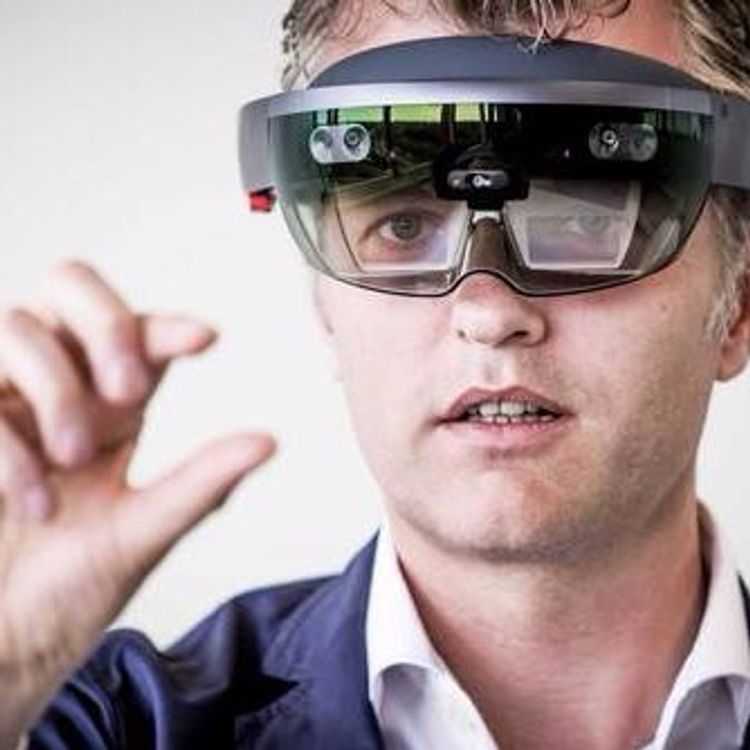
Babbage from The Economist
Babbage: Adding to reality
•
Augmented reality technology blends the virtual with the real world, so how might this alter the way humans interact with computers, and each other? Also, we explore how artificial intelligence can enhance selling techniques.
More episodes
View all episodes
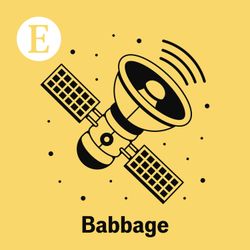
LLM, MD: AI health bots are coming
35:58|The large language models underpinning generative AI have tremendous potential to wrangle messy medical data, chat with patients about their personal health, make diagnoses, and even suggest medications and make appointments. But how to ensure that data are kept private and the advice is trustworthy? We meet some of the researchers trying to develop the long-touted doctor in your pocket.Host: Alok Jha, The Economist’s science and technology editor, with Natasha Loder, our health editor. Contributors: Claire Novorol of ADA Health; Adam Rodman and Jason Gusdorf of Harvard Medical School and the Beth Israel Deaconess Medical Centre.For more on this topic, listen to our two-part series on AI in health care, published in May 2024. Transcripts of our podcasts are available via economist.com/podcasts.Listen to what matters most, from global politics and business to science and technology—subscribe to Economist Podcasts+.For more information about how to access Economist Podcasts+, please visit our FAQs page or watch our video explaining how to link your account.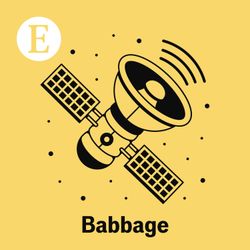
Doomed experiment: Trump’s assault on science
42:02|Across America scientists are reeling as they are hit with wave after wave of grant terminations and funding freezes. Federal science agencies have fired thousands of staff. And President Trump has declared war on the country’s leading universities. The administration says it seeks to usher in a “Golden Age” of science and innovation. Our reporting suggests that it will do the opposite.Host: Alok Jha, The Economist’s science and technology editor, with science correspondent Emilie Steinmark. Contributors: Don Ingber of Harvard University; Amy Nunn of Brown University; Hannah Cooper of Emory University; Brigitte Seim of the University of Minnesota; Jane Carlton of Johns Hopkins University.Transcripts of our podcasts are available via economist.com/podcasts.Listen to what matters most, from global politics and business to science and technology—subscribe to Economist Podcasts+.For more information about how to access Economist Podcasts+, please visit our FAQs page or watch our video explaining how to link your account.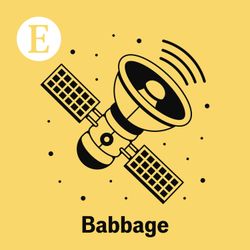
Standard bearers: why it's harder than you think to measure a metre
43:30|The Metre Convention is a treaty that codified the measurement of the metre and the kilogram. Signed on May 20th 1875 in Paris, it facilitated trade and underpinned the development of new technology. Accurate measurements are essential for innovation, but the way scientists perform those measurements has changed over time. Now, 150 years since the treaty was first signed, how are scientists improving measurement standards?Hosts: The Economist’s Alok Jha and Gilead Amit. Contributors: JT Janssen, Andrew Lewis and Anne Curtis at Britain’s National Physical Laboratory. Transcripts of our podcasts are available via economist.com/podcasts.Listen to what matters most, from global politics and business to science and technology—subscribe to Economist Podcasts+.For more information about how to access Economist Podcasts+, please visit our FAQs page or watch our video explaining how to link your account.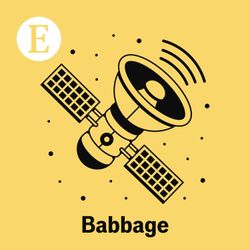
Richard Cytowic: the human brain in the digital age
27:01|In the 1980s Richard Cytowic, a neurologist, came across a patient whose senses seemed to blur into one another. His research into this strange condition defined the modern understanding of what would come to be known as synesthesia. In his latest work he’s been taking on the digital age. His new book considers how humans’ slow-to-evolve brains are at odds with an ever-changing technological environment. As the world gets relentlessly more digital, Professor Cytowic considers the impact of all that information on our attention spans, learning, and even the ability to form human connections.Hosts: Alok Jha, The Economist’s science and technology editor. Contributor: Richard Cytowic, professor of neurology at George Washington University and the author of “Your Stone Age Brain in the Screen Age”.Transcripts of our podcasts are available via economist.com/podcasts.Listen to what matters most, from global politics and business to science and technology—subscribe to Economist Podcasts+.For more information about how to access Economist Podcasts+, please visit our FAQs page or watch our video explaining how to link your account.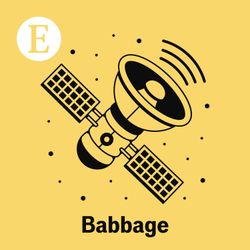
Early onset: why is cancer on the rise in younger people?
38:50|The number of people under 50 being diagnosed with cancer has risen dramatically in recent decades. Many cases cannot be explained by a family history of disease or any lifestyle factors—such as smoking, drinking or unhealthy foods—that would otherwise put the individuals at a higher risk. Explaining this rise in early-onset cancer has therefore presented a conundrum. But clues are now emerging—is there some kind of exposure in the environment that could perhaps explain some of the cases?Host: Alok Jha, The Economist’s science and technology editor. Contributors: Ann Young, who was diagnosed with breast cancer in her 30s; Mike Stratton of the Wellcome Sanger Institute; Slavea Chankova, The Economist’s health-care correspondent. Thanks also to Meg Bernhard, who wrote about Ann’s story in The Economist.Transcripts of our podcasts are available via economist.com/podcasts.Listen to what matters most, from global politics and business to science and technology—subscribe to Economist Podcasts+.For more information about how to access Economist Podcasts+, please visit our FAQs page or watch our video explaining how to link your account.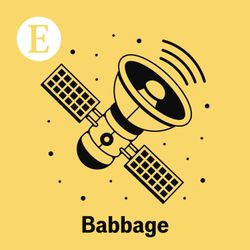
Herman Pontzer: what people get wrong about metabolism
35:26|Do you run, cycle or swim to lose weight? Herman Pontzer, an evolutionary anthropologist who specialises in understanding how humans use energy, thinks you’re probably wasting your time. His idea of the “exercise paradox” suggests that the amount of energy people use in a day is constrained (by evolution) and that exercising more doesn’t end up burning more calories. Figuring out why our bodies work like this is part of Prof Pontzer’s bigger project to map out and better understand how evolution has shaped variations in human biology. Hosts: Alok Jha, The Economist’s science and technology editor. Contributor: Herman Pontzer, professor of evolutionary anthropology and global health at Duke University and the author of “Burn” and “Adaptable”.Transcripts of our podcasts are available via economist.com/podcasts.Listen to what matters most, from global politics and business to science and technology—subscribe to Economist Podcasts+.For more information about how to access Economist Podcasts+, please visit our FAQs page or watch our video explaining how to link your account.
Trailer: Boss Class Season 2
02:03|Good bosses are rare. They don’t have to be. The skills of management can be learned.The Economist’s management columnist, Andrew Palmer, is here to help. The second season of Boss Class features leaders at some of the world’s best performing companies, from Levi’s to Novo Nordisk to Google. New episodes are out weekly starting May 12th. To listen to the full series, subscribe to Economist Podcasts+. https://subscribenow.economist.com/podcasts-plusIf you’re already a subscriber to The Economist, you have full access to all our shows as part of your subscription. For more information about how to access Economist Podcasts+, please visit our FAQs page or watch our video explaining how to link your account.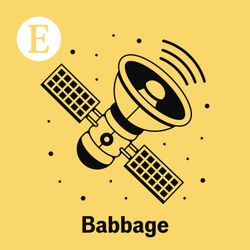
Material world: should you worry about microplastics?
41:30|Few materials have had such an influence on humanity as plastic. But as a result, tiny fragments, known as microplastics, have become ubiquitous in the environment. They have been found in Earth’s most pristine environments, from Antarctica to the deepest ocean trenches. And researchers have even detected microplastics in human blood and breast milk, and in organs such as the heart and the brain. How worried should you be about their impact on human health?Hosts: The Economist’s Alok Jha and Gilead Amit. Contributors: Mark Miodownik of University College London; Douglas Walker of Emory University; and The Economist’s health-care correspondent, Slavea Chankova. Read more about new ways to recycle plastic and how to manage waste better.Transcripts of our podcasts are available via economist.com/podcasts.Listen to what matters most, from global politics and business to science and technology—subscribe to Economist Podcasts+.For more information about how to access Economist Podcasts+, please visit our FAQs page or watch our video explaining how to link your account.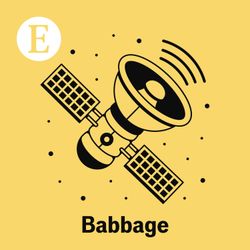
Well informed: which foods should you avoid?
37:55|The internet is awash with clever fitness hacks, fad diets and home remedies that claim to help you live a longer, healthier and happier life. But how well do these promises hold up to scientific scrutiny? And what about the vices you’re told to avoid? This week, our correspondents consider the evidence on three types of food that have been linked to health concerns: butter, ultra-processed foods and red meat. How bad for you are they, really?This episode is part of our new “Well informed” series on Babbage. Every few months we’ll scrutinise the evidence behind some of the health or wellness trends making headlines. Host: Alok Jha, The Economist’s science and technology editor. Contributors: The Economist’s Ainslie Johnstone, Shailesh Chitnis and Slavea Chankova.Subscribers to The Economist can find “Well informed” articles on our website or app every Saturday.Transcripts of our podcasts are available via economist.com/podcasts.Listen to what matters most, from global politics and business to science and technology—subscribe to Economist Podcasts+.For more information about how to access Economist Podcasts+, please visit our FAQs page or watch our video explaining how to link your account.